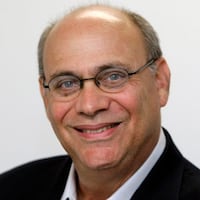Her family and friends said leave it alone, but Lisa Miller had other ideas. Convinced that her doctor had sexually violated her during her last visit, she believed she had to do something to expose him. She also knew she couldn’t let it come down to her word against his.
So there she was, back in Dr. Daniel Tesfaye’s office at DeKalb Medical Center, this time with her cell phone in video mode and tucked into a pocket of her wallet, where a hole had been cut for the lens.
The gambit worked. Miller got a video showing Tesfaye, a neurologist, suddenly burying his head in her breasts and leaving it there for more than 15 seconds.
What she didn’t get was the justice she thought she deserved.
Tesfaye’s case, one of the hundreds examined by The Atlanta Journal-Constitution as part of its latest investigation of doctors and sex abuse, shows how the secrecy and influence that permeate the system can provide cover even for a physician graphically caught in the act.
A decade before he treated Miller, Tesfaye had been admonished by the medical board in North Carolina, where he was then practicing, for inappropriate behavior with female patients. But the board dealt with those incidents in private, and they were unknown to DeKalb County prosecutors when Miller came forward with her video.
The result was a quick trip through the criminal justice system that treated Tesfaye’s conduct as a one-time lapse in judgment and allowed the Ethiopian-born physician to avoid jail time, keep his medical license and restart his career in a new location.
Tesfaye, who was fired from his position with DeKalb Medical Physicians Group, now practices on his own in Conyers and can treat female patients as long as he has a female chaperone present.
Meantime, some familiar with his case are just now becoming aware of the secrecy that protected him and questioning the legitimacy of it.
“These medical boards that essentially hide this information do a great disservice to citizens, not only in their states, but clearly in other states as well,” said DeKalb County District Attorney Sherry Boston, who was the county’s solicitor general when Tesfaye was prosecuted.
‘My power’
Miller, who agreed to be identified by name and allow the AJC to publish her video, said Tesfaye behaved normally when he first began treating her for persistent headaches in June 2015. But he acted differently at a mid-August appointment, the first in which she wasn’t accompanied by her husband, she said.
In a statement she later gave to the DeKalb solicitor’s office, Miller said the doctor tried to kiss her, put his head near her chest and grabbed her buttocks.
With that in mind, the 45-year-old Atlanta woman decided to return two weeks later, again without her husband, to see if she could secretly record Tesfaye behaving the same way.
"The video for me was my power," she said. "My thing was, this was a weapon so I could prove what he did to me."
But because the solicitor’s office wasn’t aware of any pattern of misconduct, Tesfaye was able to negotiate a deal in which he pleaded guilty to sexual battery, a misdemeanor, and received a year’s probation. He also was sentenced as a first offender, making him eligible to have the conviction removed from his record.
Less than two months later, the 56-year-old physician appeared before the Georgia Composite Medical Board, which determined that he could continue practicing as long as he adhered to the chaperone requirement and other restrictions for at least three years. The board’s order makes no mention of any issues other than the sexual battery conviction.
Only last August — more than a year after Tesfaye had been sentenced and dealt with by the medical board — did the North Carolina board make public his history in that state. The information was disclosed as part of an order in which he surrendered his license there.
The order noted that the board had admonished Tesfaye in 2005 after one patient complained that he hugged her inappropriately and asked sexually suggestive questions and another complained that he told an inappropriate joke.
It also disclosed that Tesfaye appeared before the board again in 2008 after it was alleged that he made inappropriate and unwanted comments toward a female staff member.
Miller, who has three grown children, fought back tears last month during an interview with the AJC in which she learned the details of Tesfaye’s past for the first time.
"If you know the system, you can hide all your imperfections," she said. "I was crushed. These other people were crushed. And he's just moving along, maneuvering through life."
Tesfaye did not respond to phone and written messages seeking an interview for this story.
Privacy and protection
That the North Carolina medical board used private orders to deal with Tesfaye isn’t unusual. Reporting by the AJC has shown that medical boards in many states, including Georgia, routinely use such directives to discipline doctors in sexual misconduct cases.
But Tesfaye’s case raises particular questions because Boston, who also learned of the North Carolina order from the AJC, said Tesfaye’s sentence likely would have been considerably tougher had her office known of his past.
“Certainly, had we known of these prior incidents in North Carolina, not only would we have not asked that he receive first offender sentencing, I would have been asking for jail time,” she said.
Boston said it was particularly galling to see in the North Carolina order that Tesfaye had been required to complete a course on physician boundaries through Vanderbilt University, because terms of his plea deal with her office included taking the same course.
"Part of the reason we agreed to the deal we did was because Dr. Tesfaye agreed to go into this program that is specifically for doctors with these issues," she said. "Had I known that Dr. Tesfaye had completed a similar program and still, after completing that program, sexually (violated) another woman in Georgia, that would have changed my perception of the case."
In 2016, the AJC reported how another Atlanta-area physician, Dr. Jacob Ward, was denied a first offender sentence in a sexual battery case when it was disclosed that he had previously been disciplined confidentially for similar conduct by the Georgia medical board. Cherokee County Judge Dee Morris made that decision when the victim emotionally revealed the private order during the sentencing hearing.
Brian Blankenship, deputy general counsel for the North Carolina medical board, defended the board’s use of private orders, calling them a legitimate tool in cases where the transgressions are relatively minor or there are complications with witnesses or evidence.
He declined to discuss the board’s thinking regarding Tesfaye except to say the sexual battery conviction represented “a substantial escalation” in the doctor’s behavior and that led the board to make the details of the private matters public.
“It’s really easy when you have the end of the story to look back and say, `Oh, well, the fact that somebody told an inappropriate joke should have been an indication that they were going to commit a sexual (offense) eight years later,’” he said. “We can’t draw those conclusions. We can’t take disciplinary action against a doctor based on what we think they might do eight years later.”
Silence in Georgia
According to the Georgia medical board’s public order sanctioning Tesfaye, the doctor informed the board while his criminal case was pending that he had engaged in a boundary violation with a patient, had stopped working and was in treatment for “professional sexual boundary issues.”
The order says nothing about the North Carolina issues, although Tesfaye would have been required to report them when he applied for a Georgia license in 2012.
LaSharn Hughes, the board’s executive director, declined to say what the board knew about Tesfaye when it licensed or disciplined him.
“I can’t provide information regarding this matter, as you know applications and the materials are confidential,” she wrote in an email.
Cheryl Iverson, DeKalb Medical’s vice president for marketing and communications, said the health care system had no knowledge of Tesfaye’s issues in North Carolina when it hired him in 2012.
Had it been aware, she said, "we wouldn't have hired him, no."
After Miller’s case came to light and Tesfaye was interviewed by an investigator working for DeKalb Medical, he revealed some information about his past, documents provided to the AJC by the health care system show. But he insisted that his problems in North Carolina had nothing to do with sex.
“He explained that his boundary issues relate to impulsivity, which he describes as his initiation of hugs, telling of off-color jokes and his disclosure and discussion of personal information with employees and patients,” the investigator wrote.
A way to feel safe
All Miller has to do to remember what happened in Tesfaye’s office is look at her body. In July 2016, a year after her last visit, she underwent breast reduction surgery because she believed her figure had made her a target for the doctor.
"It was like I had to do something, because I wanted to feel safe in my own skin," she said. "I felt like everyone was looking at my breasts."
A lawsuit filed by Miller last May seeks unspecified damages from Tesfaye for assault, battery and infliction of emotional distress, but it’s largely a symbolic gesture.
In a bankruptcy filing last August, Tesfaye listed his assets as $24,596 and his liabilities as $453,934. According to the filing, his income fell from more than $390,000 in 2015 to $5,420 the following year.
“We could wind up with a judgment she’ll never collect, but it’s out there,” Miller’s attorney, Matthew McGahren, said.
Miller understands. She said she believes the best thing she can do is share her story. She wants people to see what happened to her and what she did to fight back.
“At least I can give them the power so they won’t walk into a situation like I did,” she said.
» Read the AJC’s award-winning investigation, Doctors & Sex Abuse: AJC 50-state investigation
Keep Reading
The Latest
Featured









